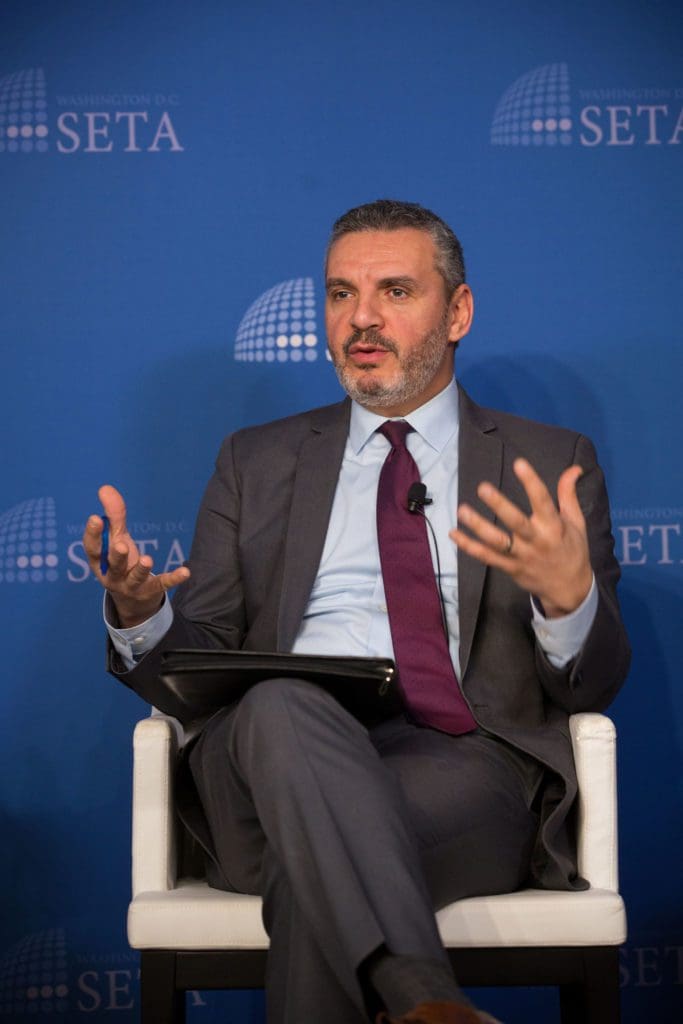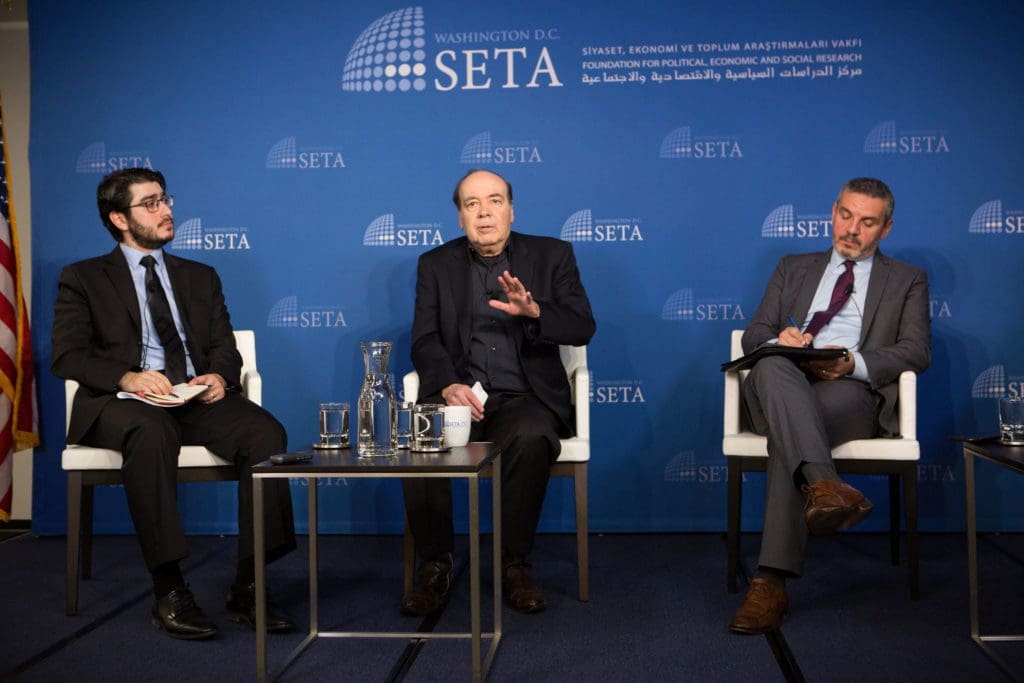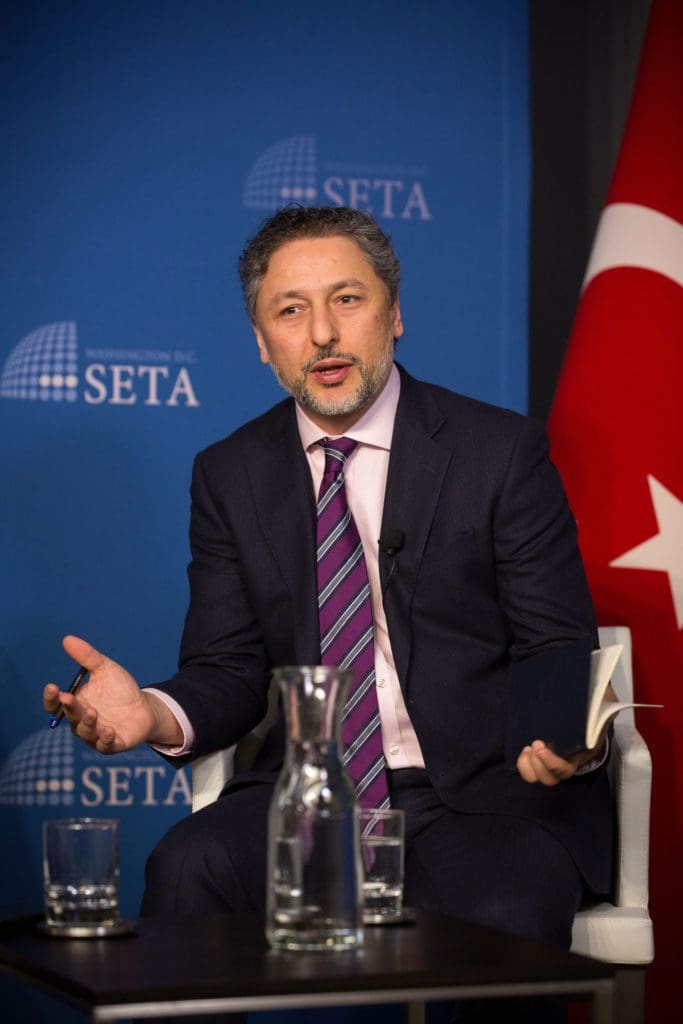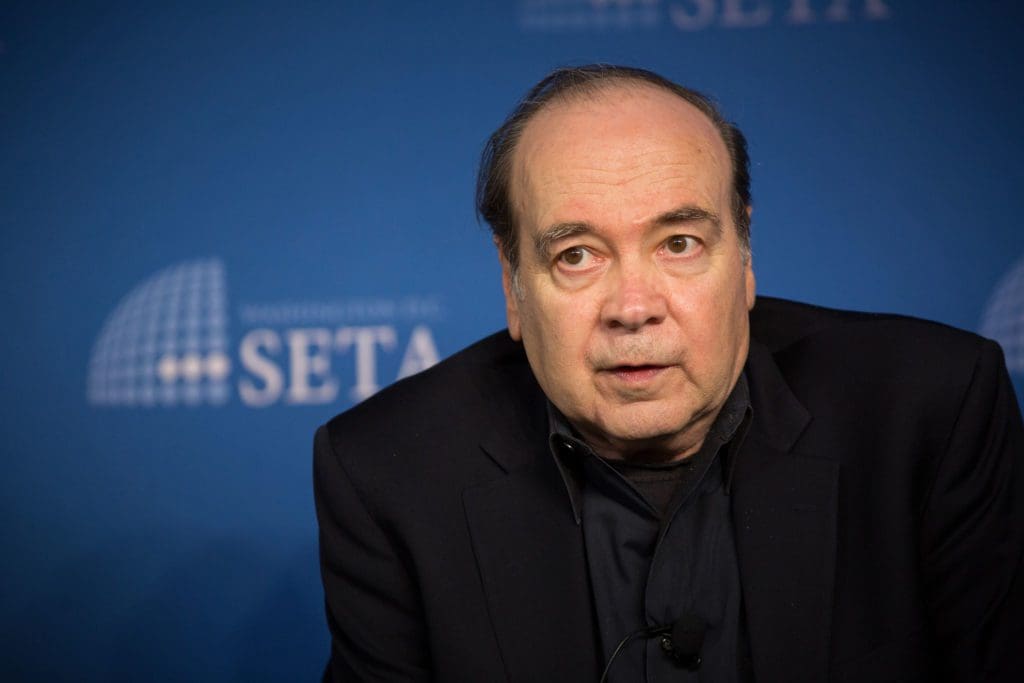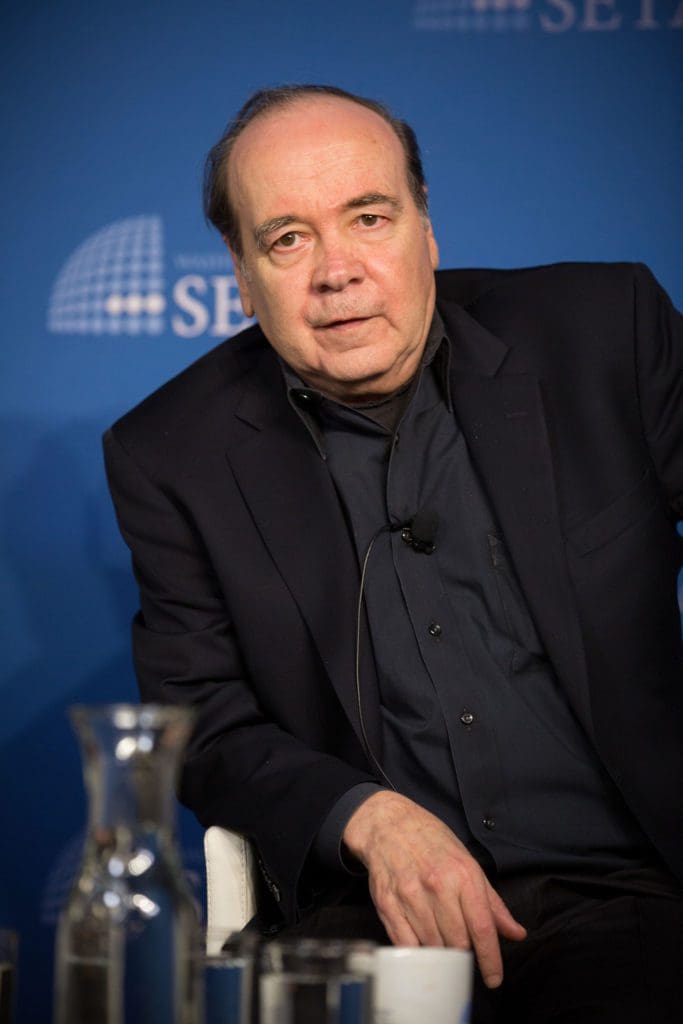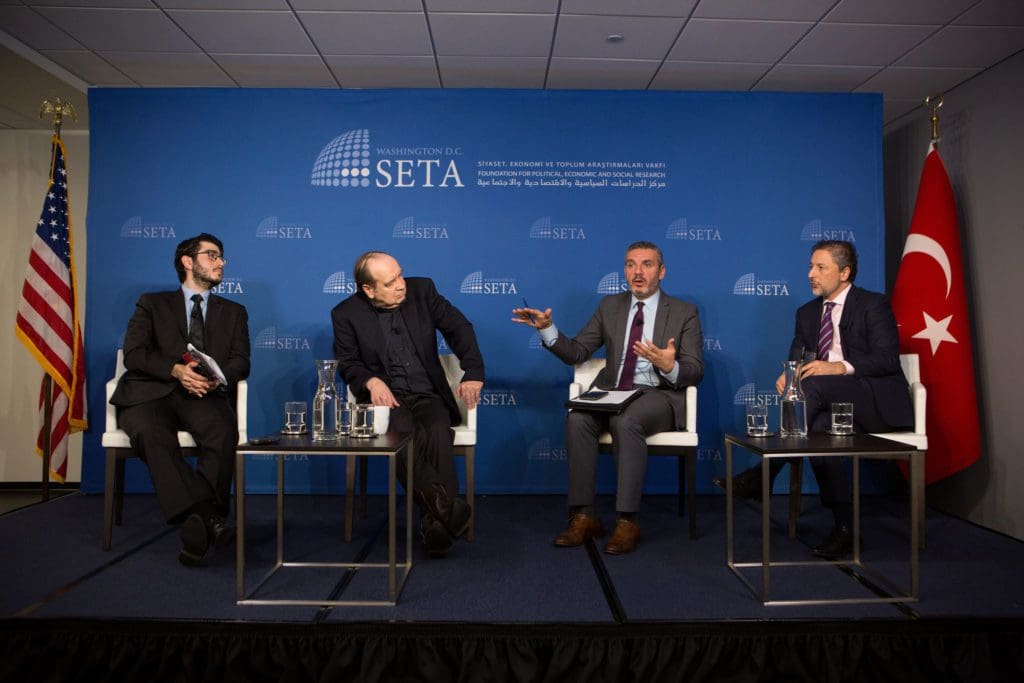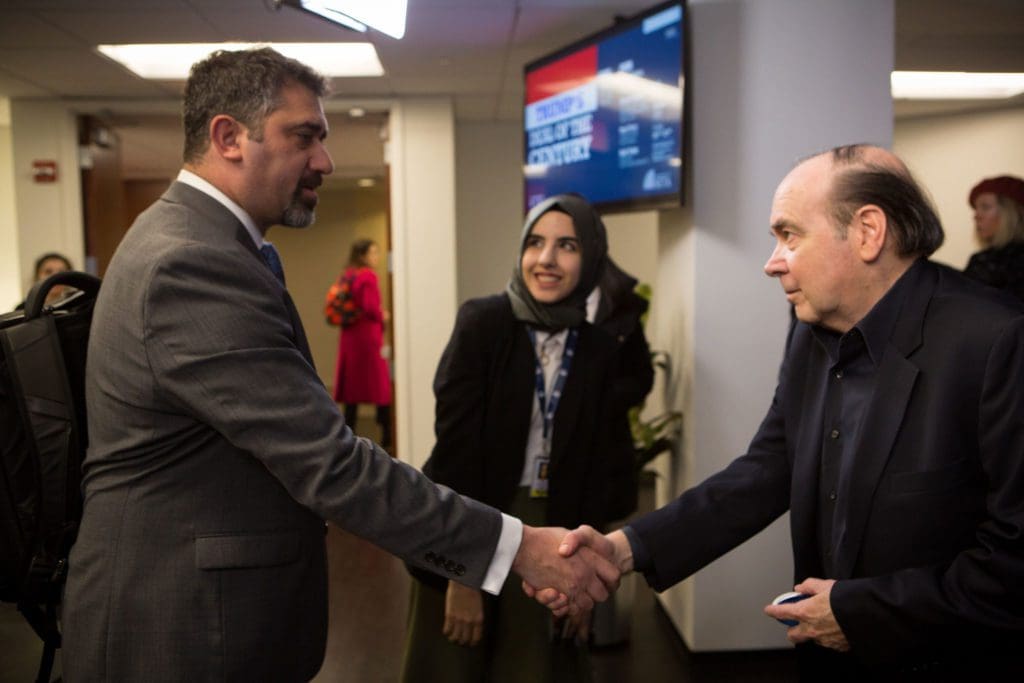
Event Summary: TrumpŌĆÖs ŌĆ£Deal of the CenturyŌĆØ
February 12, 2020On Tuesday, February 11, the SETA Foundation at Washington, DC hosted a panel discussion titled ŌĆ£TrumpŌĆÖs Deal of the Century.ŌĆØ
On Tuesday, February 11, the SETA Foundation at Washington, DC hosted a panel discussion titled ŌĆ£TrumpŌĆÖs Deal of the Century.ŌĆØ The panel included Khaled Elgindy, Senior Fellow and Director of Program on Palestine and Palestinian-Israeli Affairs at the Middle East Institute, Mark Perry, independent author and foreign policy analyst, and Kadir Ustun, Executive Director at the SETA Foundation at Washington, DC. The discussion was moderated by Hasan Yucel, Research Assistant at the SETA Foundation at Washington, DC.
At the outset of the discussion, Elgindy made it clear that TrumpŌĆÖs peace plan is based on precedent laid out by previous administrations. The Trump administrationŌĆÖs plan is not anything new, but it differs from those before it because it takes precedent and ideas to the extreme. As the ŌĆ£deal of the century,ŌĆØ the plan is designed to consolidate a centuryŌĆÖs worth of policies and practices. He explains that now is the best time for Trump and Netanyahu to bring this plan to fruition because the opportunity will escape them if they are no longer in office, which is a possibility this year. In terms of American and Israeli domestic politics, American Jews are left without a counterpart in Israel as Israeli politics has consistently shifted more to the right. Elgindy explains that the reason the US, Israel, and Palestinians have arrived at this point is due to three factors: power, TrumpŌĆÖs potential re-election, and history. With the two powerful entities of the US and Israel trying to impose a new reality on the Palestinians and the Middle East, there is a real chance that it could take hold.
Perry began by highlighting the fact that the plan not only makes the Palestinians stateless, but it makes them completely invisible. He finds it ŌĆ£perverseŌĆØ that Americans who tout their moral high ground could propose such a solution, and claims that the deal is entirely un-American. He then went on to explain the emerging dynamic of the American publicŌĆÖs relationship with Israel. People who are anti-Israel are now being viewed as anti-Semites in a shockingly negative political trend. This has sparked debate inside the Jewish community which will have implications that are yet to be seen. As a history scholar, Perry drew attention to the fact that Israel had to re-anchor itself to the US in the early 2000s in order to establish itself in a post-9/11 world. Now, the Trump administration is solidifying IsraelŌĆÖs place within the evangelical Christian community in the US.
Ustun insisted that KushnerŌĆÖs remarks on the deal did not represent those of a negotiator; instead, he made a declaration. There is danger that this deal can serve as the impetus for relations to spiral out of control, inciting another round of violence. While he is cynical about the plan actually working, Ustun explained that the silver lining is that the Trump administration forfeited any pretense of acting as a neutral party. Palestinians do not possess the power to be recognized as a legitimate actor in charge of their own future and rights, but it is likely that the Islamic world will not give up on this issue. In terms of TurkeyŌĆÖs perspective on the proposed peace plan, Ankara remains consistent in its criticism of settlements. While Trump and Erdogan have a good relationship, Erdogan has been vocal about his opposition to TrumpŌĆÖs Jerusalem declaration and this deal. Turkey will follow what the Palestinian leadership proposes and will subsequently attempt to rally the Islamic world against plans and declarations like the ŌĆ£deal of the century.ŌĆØ














